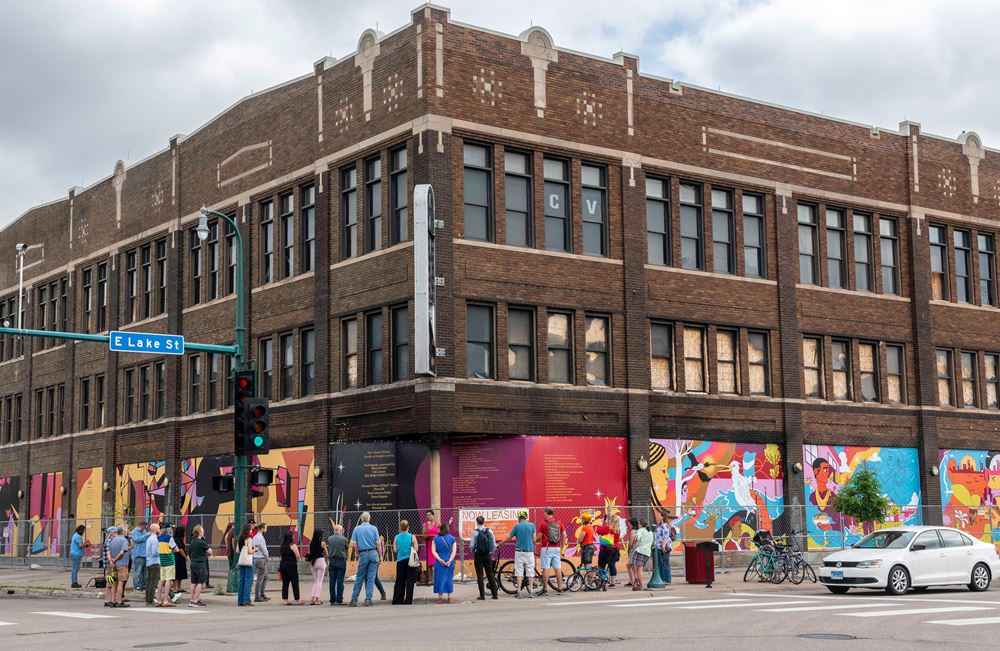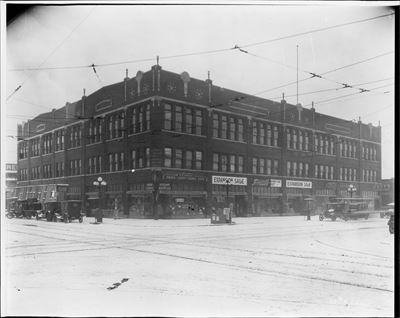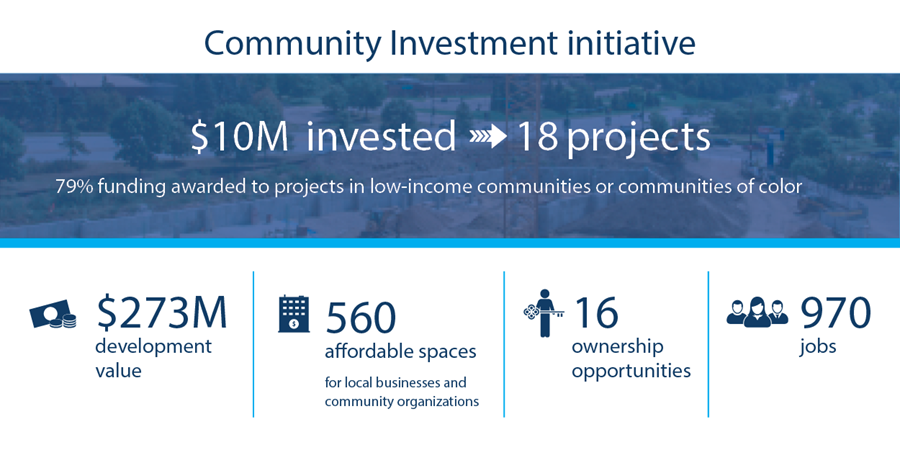Coliseum project highlights power of equitable development
County funding helps bring new life to historic Lake Street building
Situated at the epicenter of civil unrest following the murder of George Floyd in 2020, the historic Coliseum building on Lake Street in Minneapolis is rising with new life as testament to the power of community-led redevelopment.

Supported by Hennepin County’s Community Investment Initiative and Transit Oriented Development program, the $30 million project is led by Redesign, Inc., a locally owned nonprofit community development corporation.
The project centers community leadership and visioning and will:
- Provide 70,000 square feet of commercial space
- Ensure long-term affordability to 25 Black, Indigenous, and People of Color (BIPOC) business owners
- Create 150 new jobs
- Be co-owned by three local Black business leaders, who will also be anchor tenants.
 Focus on community healing through innovative public lobby design, public art, and cultural installations
Focus on community healing through innovative public lobby design, public art, and cultural installations
Taylor Smrikárova (picture right), Director of Property Development at Redesign, Inc., says this project stands in opposition to extractive development and gentrification. “It focuses on new models for economic justice, especially those that center BIPOC ownership and build community wealth.”
New life, new model
The building will be co-owned by Alicia Belton of Urban Design Perspective (also the building’s architect), Janice Downing of Commonsense Consulting@Work, and Chris Montana of DuNord Social Spirits. These three Black-owned business leaders will also be anchor tenants in the building. Belton and Downing will own and operate a shared office space for Black creatives called SHAKE Community, and Montana will own and operate a new bar and restaurant concept.
“Many of the images of businesses burning broadcasted around the globe were filmed adjacent to this site,” Smrikárova said, noting that her team was part of a leadership and recovery coalition with other community leaders who were on the ground cleaning debris soon after the fires. That team continues to meet to envision and shape the Coliseum’s next chapter.

The building suffered significant damage from the civil unrest that followed the murder of George Floyd in 2020. The building at the time housed 12 small businesses and nonprofit organizations, many that were BIPOC-owned or led and had been in the building for more than 20 years. Some of those tenants still have not found permanent affordable rental space after being displaced.
“This project will give them the opportunity to return home to this building and community,” Smrikárova said. New small businesses that provide goods and services currently lacking in the neighborhood will also be recruited.
Rehabilitation of the Coliseum began in September 2022 and is anticipated to be complete in fall 2023. The building was recently approved for inclusion on the National Registry of Historic Places in recognition of its prominence along the Lake Street corridor.
Support from Hennepin County crucial
The Coliseum project received $1.75 million from Hennepin County community development programs, including the Community Investment Initiative and Transit Oriented Development program. The Coliseum was one of 18 projects to receive funding through Hennepin County’s Community Investment Initiative.

“Our goal with the Community Investment Initiative was to accelerate economic recovery in communities hit hardest by the pandemic, but also to reduce long-standing racial disparities in those same communities,” said Patricia Fitzgerald, Hennepin County Director of Community and Economic Development.
The Coliseum project received $1.5 million in funding through the Community Investment Initiative and $250,000 through Hennepin County’s Transit Oriented Development program. County funds will ensure the building is brought back up to code while aligning with historic designation guidelines.